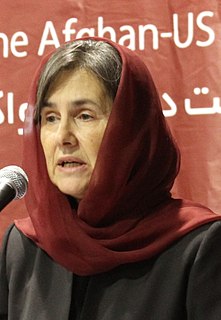A Quote by Khaled Hosseini
For a novelist, it’s kind of an onerous burden to represent an entire culture. That said, I’m in a unique position to speak on behalf of Afghanistan on certain issues that I feel are important, particularly the issue of Afghan refugees.
Related Quotes
I just feel like there's something to be said about feeling comfortable with what you have and don't have. And - for instance, I don't think I'm particularly a great singer, but I feel like I write songs that complement my voice, you know, and I feel like it's unique. And I don't feel like I'm particularly a great actor, for instance, but I feel like I approach each thing that I do with some level of sensitivity. And I would say that comedy in general is the most disarming.
I think that the important thing to know is, which is great about this country [the USA], when it comes to domestic issues, we all battle it out and fight it between the parties and all those kind of things to get things done, but when it comes to foreign issues, overseas kind of things, then we all speak with one voice.


































